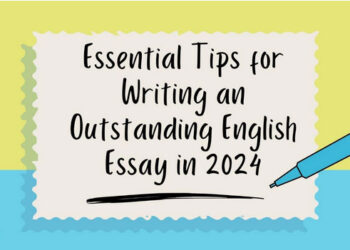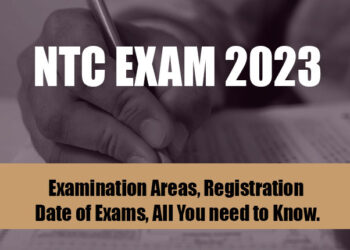Concise essay writing requires the person (student, teacher, or writer) to take care of several elements like using supportive arguments, free from plagiarism, and conciseness. Each element has its importance.
But today in this article, we are going to address only conciseness. A concise essay allows the reader to quickly understand the main idea/concept without spending much time.
However, writing concisely is not as easy as people think. We have even seen people with good writing skills struggling to cover a bunch of information within a few sentences or paragraphs.
If you are also struggling, then continue reading this article as it has covered some effective tips that will help in coming up with compact essay writeups.
Proven Tips for Creating Concise Essays
Below are five effective tips that you can consider following to write concise and to-the-point essays.
1. Write in Active Voice Instead of Passive

Active voice is a form of sentence where the “subject” is a hero and does all the actions. Whereas in passive voice, the subject is shown to perform the actions forcefully.
To come up with a to-the-point essay, it is considered an excellent tip to write in an active voice rather than a passive one. This is so because a sentence in active voice is usually shorter and more direct. Want to know how? Check out the example below.
Passive voice sentence:
“A new house was bought by Jeff” (Total words=7)
Active voice sentence:
“Jeff bought a new house” (Total words=5)
As you can see, the active voice sentence is 2 words shorter than the passive. So, when you write the entire in an active voice, it will definitely make a difference to its length. Now, you may want to know the best approach for writing in an active voice.
Fortunately, there is only one thumb rule which is to this order while writing sentences. First “Subject,” then “Verb,” and then “Object.”
2. Follow One Idea or Argument Per Sentence/Paragraph

While writing an essay, discuss multiple ideas at once without making a pause. Doing so will greatly increase the chances of repetition and writing fluff.
To avoid this, it is considered an effective tip to discuss one argument or point per sentence/paragraph.
Following this tip will not only help you to come up with shorter sentences but also bring cohesiveness and a focused feel to your essay. To demonstrate this, check out the example.
Fluffy Paragraph discussing multiple arguments:
| “The school’s new policy is to reduce the student’s tardiness, but this policy is creating issues for the parents who have early work shifts, and some students even have concerns about the policy as they often have to face transport issues” (45 words) |
The paragraph above discusses both the issues of students & parents regarding school policy at once. Due to this, it becomes fluffy (unnecessarily wordy). Now, we are going to again write it, but this time we will follow the one argument per sentence tip.
Improved version:
| “The school’s new policy is to reduce the student’s tardiness. However, this policy is creating issues for the parents for parents with early work shifts. Some students also have concerns as they often have to face transport issues.” (38 words) |
You can clearly see, that the second version is more concise and cohesive because it discusses one argument per line. You can do the same as well to come up with compact essay writeups.
3. Avoid Using Unnecessary Prepositional Phrases

Prepositional phrases are multiple words that start with a preposition and end with a noun, pronoun, etc. These are used in writing to give more detail about the sentence. Some commonly used prepositional phrases are “Out of pity,” “On schedule,” and many more.
However, while writing essays, we often make use of prepositional phrases that are completely unnecessary, making writing wordy. So, to come up with compact essays, you need to avoid using unnecessary prepositional phrases. To get a better idea, take a look at the example below.
Original sentence:
| “In the context of essay writing, the importance of remaining clear and concise is often neglected by the students” (19 words) |
The sentence “in the context of” is an unnecessary prepositional. Now, check the revised sentence below.
Revised sentence:
| “In essay writing, the importance of remaining clear and concise is often neglected by the students” (16 words) |
4. Use Shortened Forms of Transitions Words

Using short forms of transition words is yet another proven tip that will help in coming up with compact essays. Transition words are used in writing to build a connection between sentences or paragraphs. Some examples of these words are:
- What’s more
- Equally importance
- Besides this
And many more.
However, to bring conciseness to your essay, you should use the short form of transition words instead of longer ones.
For example, instead of writing a sentence like this:
“Apart from this, students should practice essay writing regularly.”
You can write the above sentence using a short transition word.
“Additionally, students should practice essay writing regularly.”
5. Consider Using an AI Summarizing Tool for Concise Essays
This is the most effective, simple, and quick tip through which you can come up with compact essays. A summarizer will automatically concisely condense your given writeup by eliminating unnecessary words using Artificial Intelligence (AI).
To provide you with a better idea of how this tool will help in coming up with compact essays, we practically used the tool in the below section:
Practical Example:
We provided an essay of around “529 words” to an AI summarizer. The output tool provided can be seen in the attachment below:

As you can see, the tool summarized the given essay into “216 words” by eliminating all the unnecessary details. So, you can also do the same as well.
Wrapping up
Conciseness is one of the major elements of a good essay. However, writing an essay that is to the point is not an easy task. In this article, we have discussed some of the proven tips that you can consider following to come up with compact essays.










Very resourceful
Thank you